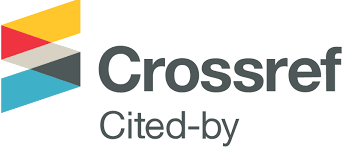During recent years, there has been a growing consumer awareness of the environmental impacts of consumption choices, and more and more people are viewing the world through "green-tinted glasses". Consumers who prioritize green consumption values and express their environmental concern through their shopping behavior represent a promising and growing target group for companies producing eco-innovative and sustainable products. However, especially in the food sector, it can be challenging for consumers to recognize which products are truly sustainable or eco-innovative due to the vast amount of information and sustainability indicators available. Therefore, it is crucial for researchers and marketers to understand how sustainable food products should be promoted in order to enhance their perceived sustainability. While previous research provides valuable insights into the question of what follows if a product or brand is perceived as sustainable, less is known about how consumers initially form a perception of sustainability. To address this gap, this research employs the means-end chain theory, which suggests that consumers evaluate products by associating perceived consequences with desired ends. Accordingly, green consumers need to perceive concrete sustainability benefits in order to evaluate a product as aligned with their consumption goals. Therefore, this study examines the mechanism that translates green consumption values through perceived concrete sustainability benefits into more abstract product and brand perceptions (i.e., sustainability and innovativeness perception). To date, this mechanism has not been empirically tested, and this study aims to fill this gap by analyzing survey responses from 1,577 consumers who assessed three different food products: oyster mushrooms, bean-based meat substitutes, and fruit. Participants were provided with descriptions of these products, including information on their sustainability in the value chain. The researchers then assessed how stronlgy various sustainability benefits are perceived by consumers as well as the overall perceived sustainability and innovativeness of the product and the associated brand. Using structural equation modeling, the findings reveal that green consumption values do not automatically translate into higher product perceptions of sustainability and innovativeness. Rather, the effect is mediated through the perception of concrete sustainability benefits of the product. However, this mediation only occurs through environmental sustainability benefits and not social sustainability benefits. This may be due to a stronger congruence with green consumption values, as well as the greater emphasis on environmental aspects of sustainability in society. Interestingly, the study also finds a spillover effect, where the positive impact of perceived product sustainability benefits overflows to product innovativeness perception, as well as brand sustainability and innovativeness perceptions. These findings highlight the importance of emphasizing concrete sustainability benefits of products in order to successfully market sustainable products to consumers with green consumption values. This specific information is necessary for consumers to interpret a product as truly sustainable and aligned with their values. The study contributes to the growing research on sustainable marketing and consumer psychology by documenting this mechanism and extending the application scope of means-end chain theory to the field of sustainable marketing. Furthermore, the findings provide valuable guidance to food marketers seeking to promote sustainable products to a promising consumer group. The results have important implications for the effective development of sustainable food marketing strategies.
Funding statement
This work was supported by the European Union's Horizon 2020 Research and Innovation Programme under grant agreement No 101000852.
Conflict of interest
The author(s) declared no potential conflicts of interest with respect to the research, authorship, and/or publication of this article.





